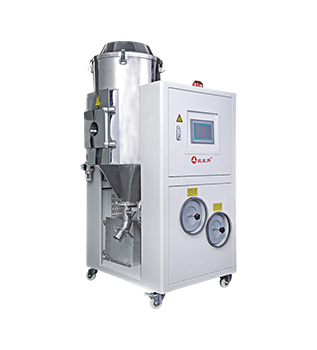
Fully automatic feeding machines play a crucial role in various fields such as industrial production, and the stability of feeding efficiency during long-term continuous operation is a matter of great concern for users.
From the perspective of equipment design, high-quality fully automatic feeding machines have taken into account long-term stability during the design phase. The internal power transmission system, such as key components such as motors and reducers, can stably output power at rated power after reasonable selection and matching, ensuring the continuity of material transportation. For example, using high-precision gear reducers, the internal gears undergo special heat treatment and precision machining, which can maintain good meshing state during long-term operation, providing guarantee for the stable operation of the feeding machine.

However, in actual long-term operation, various factors may affect the stability of feeding efficiency. The characteristics of materials are an important aspect. If the particle size of the material is uneven, smaller particles may fill the gaps in the conveying pipeline or the connections of mechanical components during the conveying process, gradually accumulating over time, thereby hindering the flow of the material and reducing the feeding efficiency. In addition, for some materials with high viscosity, they may adhere to the inner wall of the conveying device, such as the conveyor belt or spiral blades, after long-term operation, increasing the operating resistance of the equipment and affecting the feeding speed.
The working environment also has an undeniable impact on stability. In high-temperature environments, electrical components such as motors may experience performance degradation due to delayed heat dissipation. For example, the winding resistance of a motor increases with temperature. According to Ohm's law, under constant voltage, the current will decrease, resulting in a decrease in the output power of the motor and affecting the operating speed of the feeder. In humid environments, there may be a risk of short circuits or corrosion in electrical components, which not only affects efficiency but may even lead to equipment failure.
Regular maintenance is essential to ensure the stable feeding efficiency of the fully automatic feeding machine during long-term continuous operation. A comprehensive inspection of the equipment is required, including cleaning the materials attached to the conveying pipelines and mechanical components, checking the performance of the power system, and lubricating key parts. Meanwhile, according to the characteristics of the working environment, corresponding protective measures can be taken, such as adding heat dissipation devices in high temperature environments and doing a good job of moisture-proof treatment in humid environments. Only in this way can the fully automatic feeding machine maintain stable feeding efficiency during long-term operation, providing strong guarantees for the smooth progress of production.
